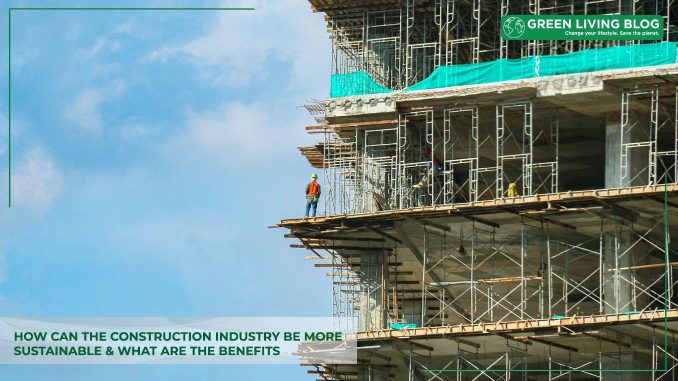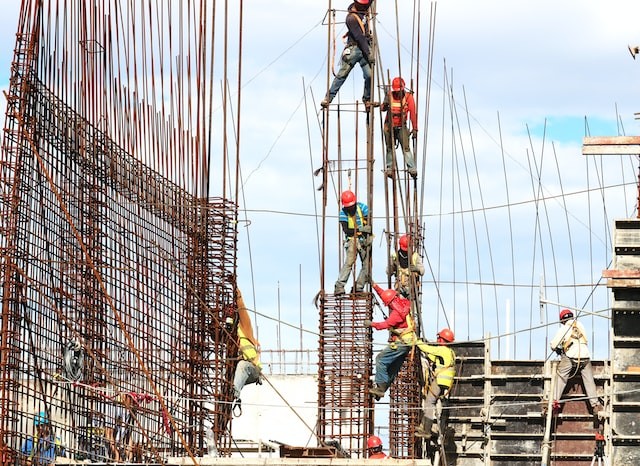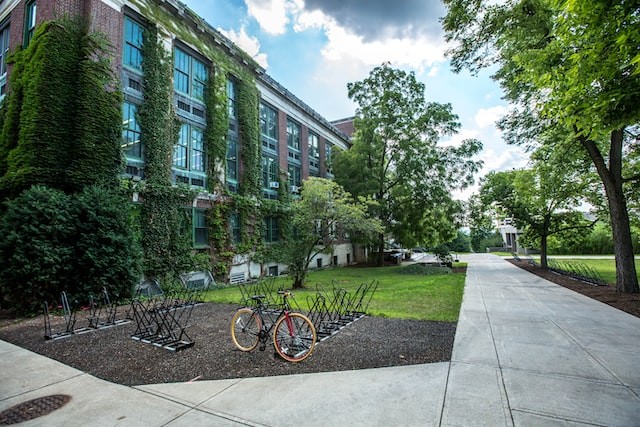
One of the largest contributors to pollution and carbon emissions, the construction industry now has a huge responsibility to help reduce the negative effects they contribute to the environment.
On average, the construction industry contributes 38% of overall carbon emissions when accounting for building and operational emissions.
The steep increase within the last few years has mainly been caused by the shift from the direct burning of coal and oil to electricity – the generation of electricity burns more carbon and leads to a higher production of harmful emissions.
To be able to reach net-zero, carbon emissions need to decrease by at least 50% by 2030, which likens to approximately 6% each year.
What is sustainability?
Sustainability within the construction industry means utilizing recyclable materials and renewable sources of energy. The production of unnecessary waste must be reduced and the environment around each site must be protected, with as little pollution produced in the process as possible.
If companies can develop appropriate green recovery packages, the industry can start to make a positive change and slow down the process of climate change; this entirely depends on the willingness of the industry to accept these innovative ideas and the government must work alongside them to achieve the designated end result.
What are the challenges?
The widespread perception of sustainability is that it is expensive to implement within pre-existing systems, which can appear to be an unsuitable alternative to companies who are either struggling to make ends meet or are performing well with their current procedures. Around 40% of businesses in the UK report that costs were an issue with regards to sustainability – it is not that these were opposed to the notion but could not imagine profiting from these changes.
However, green procedures can actually save money through the use of cheaper sustainable building materials and reduced operating costs. Furthermore, sustainable architecture can actually reduce waste production, such as water efficiency, by reducing the strain on shared water facilities.
Which sustainable Methods can the Construction Industry adopt?
1. Environmentally friendly building designs

There are countless possibilities for construction businesses to incorporate sustainable resources in their practices. This can include the choice of recycled or natural building resources, such as timber, concrete reinforced with bamboo or natural fibres, straw bales, and hemp.
Bamboo in particular is becoming a popular eco-friendly building material due to its fast self-generation, high strength-to-weight ratio, and durability. Some new builds are also now being fitted with renewable energy sources, like solar panels and windows that maximize the quantity of natural light that enters a building
2. Reduction of waste disposal

Construction will always lead to waste being produced, regardless of new processes being adopted, although the true number is quite alarming. The UK construction industry is one of the largest consumers of resources and materials, accounting for 32% of the waste than ends up in landfill – this can also be a fairly expensive process.
Efforts to reduce these figures and improve efficiency involve reusing and recycling as much of this waste as is feasible. An example of this is concrete and steel, which can be used for different purposes after removal or destruction. As an example, concrete can be used on shorelines as protection in the form of gabion walls.
3. Reduction of fuel consumption

Between the large fuel-consuming heavy machinery and diesel-powered vehicles that transport materials to the construction site, a large proportion of emissions are produced during a single project. This is one of the largest contributors to climate change and so an alternative solution must be implemented.
There has been an increase in the use of hybrid or electric vehicle versions of equipment, which burn through less or no fuel. Some manufacturers have stated now that they will discontinue the production of their machines and vehicles powered by diesel engines and only market electric models instead. These prototypes typically cost more but are cheaper to run – they negate the constant need for fuel to operate.
What are the benefits?
1. Better working conditions

The consideration of sustainability within the construction industry has been shown to improve worker productivity, thanks to improved working conditions, noise protection, and a reduction in harmful waste production. Green buildings also help to improve the health and wellbeing of occupants.
Worker productivity can be improved through the use of music, with 58% of construction workers believing that listening to music whilst working improves motivation and wellbeing. If you are looking to boost the motivation of your team, choosing a battery-powered radio or speaker, such as a Milwaukee radio, will help to ensure you are reducing your energy consumption and improving the work life of your employees.
2. Better energy efficiency

Employing renewable energy and building resources will help to reduce the overall release of carbon emissions into the environment; a necessary change to fight against climate change. Greener buildings will also help to increase the efficiency of energy and water – some will even be able to generate their own energy.
Construction businesses are also starting to accept the use of energy-efficient tools, such as battery-powered chainsaws, which are powered by lithium-ion batteries instead of fuel.
3. Better cost efficiency

Despite the claim that sustainable construction is largely expensive, greener buildings are considered more efficient and valuable than conventional ones. Studies have shown that they typically achieve a 7% rise in value over traditional buildings. Not only this, but those using the buildings will experience a reduction in utility bills.
Final Thoughts
Overall, the shift to renewable and sustainable means of working can seem like a daunting task; however, with an appropriate plan and well-thought-out designs, the process can be more effective and cheaper for construction companies in the long run. More importantly, companies will appear to be committed to helping reduce the release of carbon emissions and the negative effects the process has on our environment.
![]()


Leave a Reply
You must be logged in to post a comment.